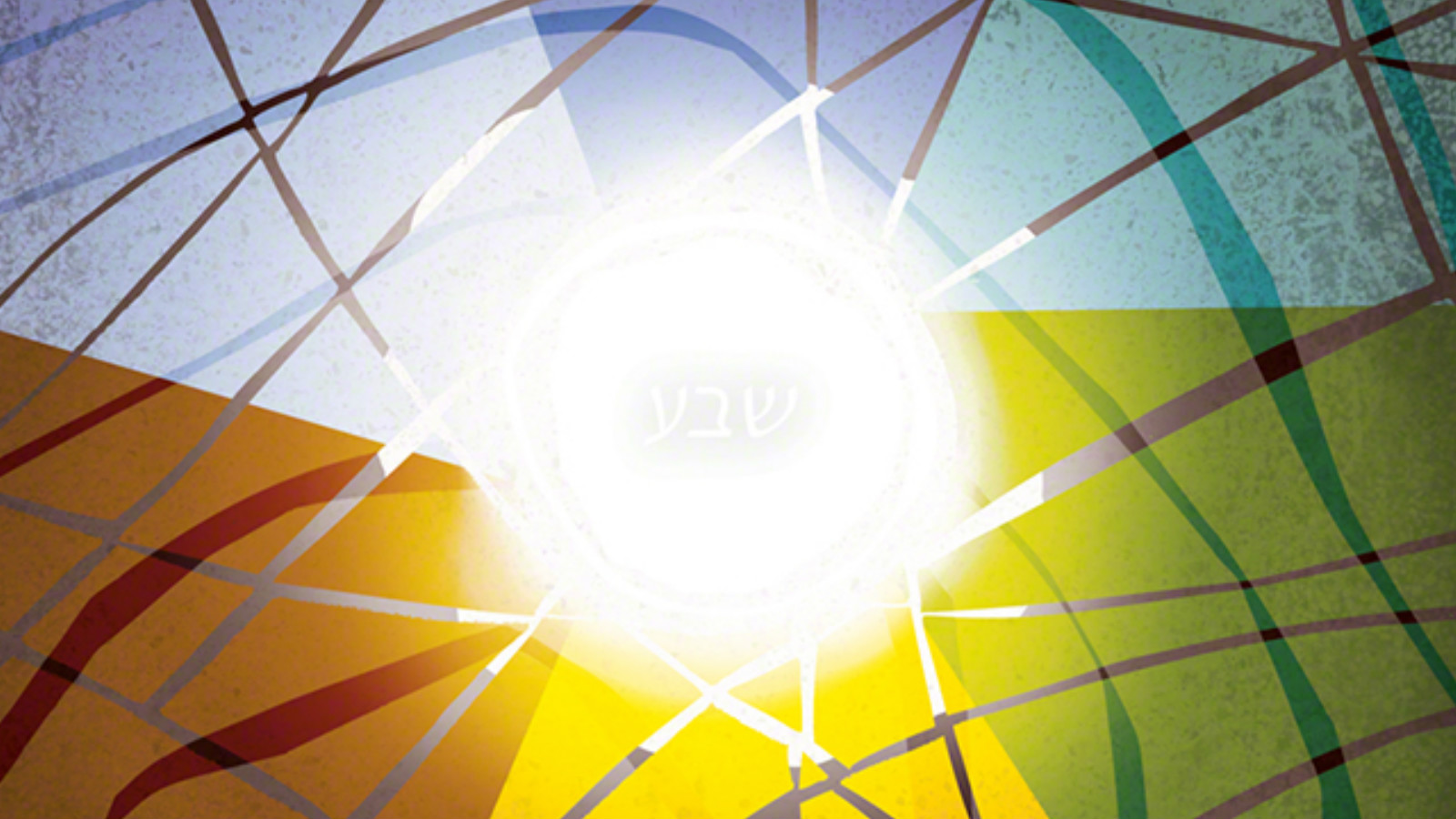Commentary on Parashat Yitro, Exodus 18:1-20:23
This week’s portion, Yitro, contains a deep memory of our people: the giving of the at Mount Sinai.
How do we remember this event in our people’s memory? Perhaps it’s the same way we remember family stories – differently.
All of us have sat around a holiday table reminiscing of past times … when, according to Uncle Joe, he fell off his bike while trying to impress a girl … or maybe Aunt Margie’s version was more accurate: The girl he was trying to impress pushed him off the bike. Or possibly it was the memory of when cousin Lucy vomited all over the Thanksgiving table because she ate an entire watermelon … or was Grandma Ethel’s version accurate: that Lucy got sick because she had stayed up all night studying for an exam?
Each parent, child, aunt, uncle and grandparent tells the story differently, and each swears their account is the correct telling. They’re not lying; it’s just that different truths impact their memory and history telling. So, too, we remember the Mount Sinai story in different ways, at different times throughout history, depending on who is telling the story.

Help us keep Jewish knowledge accessible to millions of people around the world.
Your donation to My Jewish Learning fuels endless journeys of Jewish discovery. With your help, My Jewish Learning can continue to provide nonstop opportunities for learning, connection and growth.
Telling Number 1: Receiving the Torah in Fear
The rabbis of the Talmud ask, Why do we read in this week’s portion that when the Israelites were about to receive the 10 commandments,“They stood beneath the mountain”? (Exodus 19:17) Because, Rav Avdimi bar Hama bar Hasa teaches,
“God vaulted the mountain over the people of Israel like a barrel and said to them: If you accept the Torah well and good, and if not, this mountain will fall on you and you will stand in your graves.” (Shabbat 88a)
Consider whether you and Rav Avdimi understand each other. Are you someone who often does the right thing when you are threatened? Do you keep Jewish laws because you fear God’s anger? Do you follow through on a work assignment because if you don’t you might lose your job? Are you motivated by the punishment of getting in trouble? It worked for Rav Avdimi, and maybe this telling of your life’s story works for you.
Telling Number 2: Receiving Torah as an Act of Searching
The great modern Israeli poet Yehuda Amichai boldly imagines that the Torah wasn’t given at Mount Sinai, but left there by mistake and we, the Jews, accidentally found ourselves possessing it. In “Gods Come and Go, Prayers Remain Forever,” Amichai writes:
When God left the earth He forgot the Torah with the Jews
and since then – they look for him
and cry after Him, “You forgot something, You forgot,” in a loud voice
and others think that this is the prayer of the Jews.
And since then,
they strain to find hints in the Bible
as to the place He might be found
as it says, “Seek the Lord where He is to be found,
Call upon him when He is close”.
But He is far.
According to Amichai, we read Torah because we try to find God in order to give God something God mistakenly left behind, the Torah. Amichai radically suggests that Torah isn’t ours, but God’s. We cry, “You forgot something, You forgot,” because we don’t want Torah. It’s too much of a burden and we wish to return it to its rightful owner. Ironically the only way we can give the Torah back to God is by combing it for evidence of God’s presence.
When are you like Amichai? When do you cry out in confusion, not knowing what’s up or down, left or right? When do you feel as lost as God, missing something, but not quite knowing what it is? When do you feel burdened and left behind?
Our rabbis also taught, “Moses received Torah from Sinai and transmitted it to Joshua who transmitted it to the elders; from the elders to the prophets; the prophets to the members of the Great Assembly.” (Pirkei 1:1) In this game of Torah telephone, I wonder what got remembered and what got lost? Whose voices became forgotten: the children, women, disabled, gay or stranger? Whose stories were left on the cutting floor? What stories of motivation to keep Jewish are still told, and what stories will we need to create?
Rav Avdimi bar Hama bar Hasa and Amichai: Torah, our greatest collective story, is a compelling force in Israel’s life. The story might threaten us into submission or cause us to wander, but it is compelling and life-defining, just like our shared stories are around the holiday dinner table.



